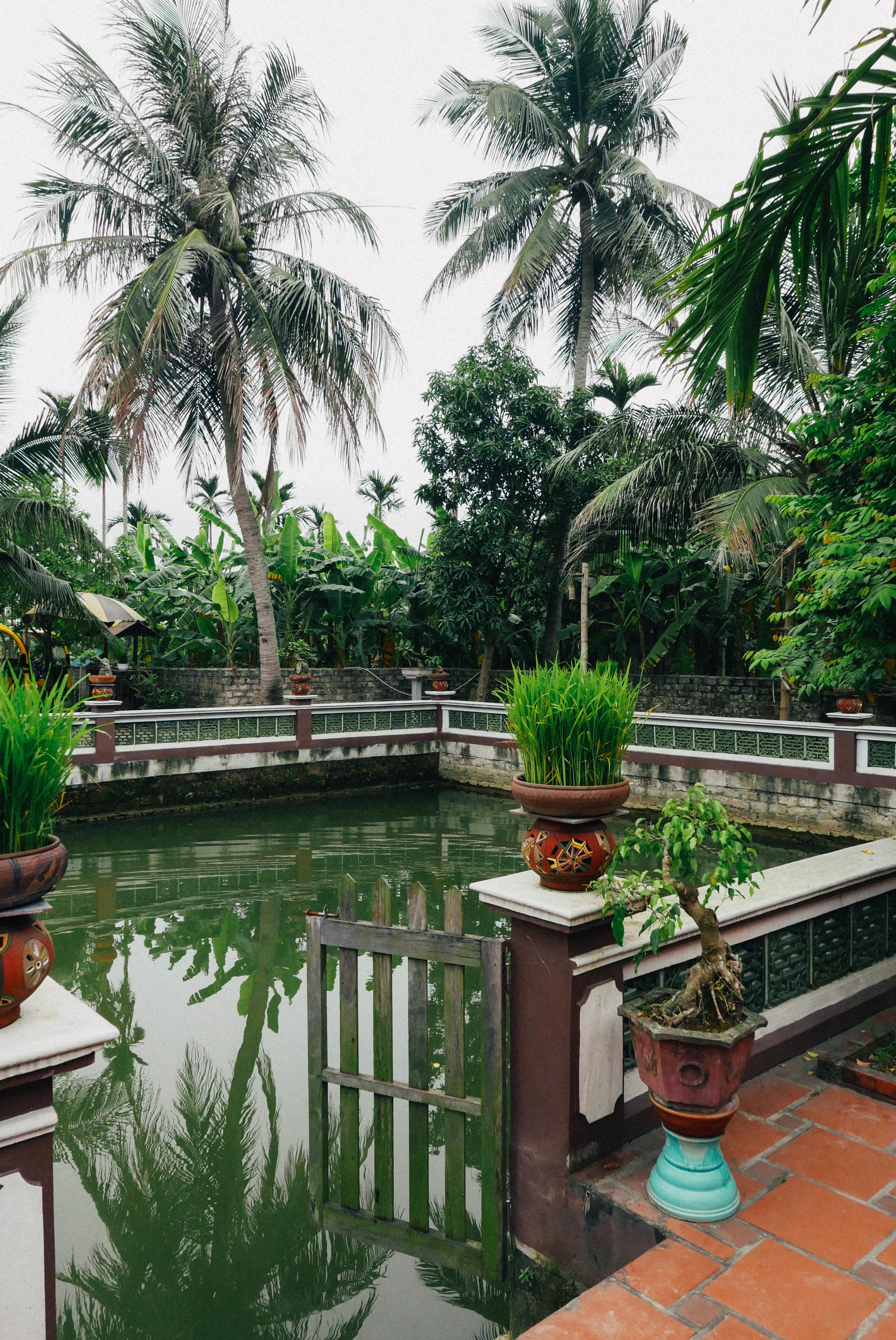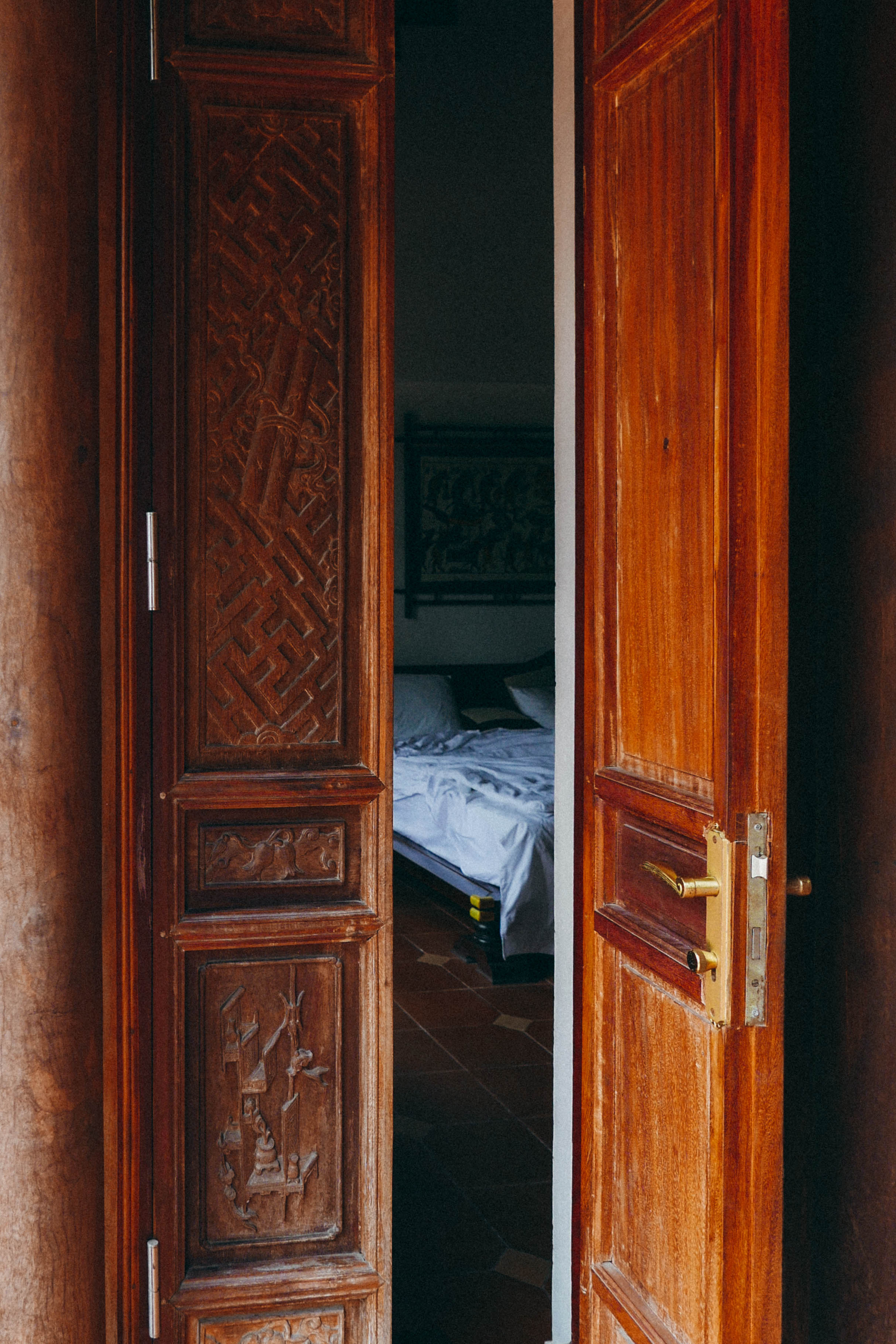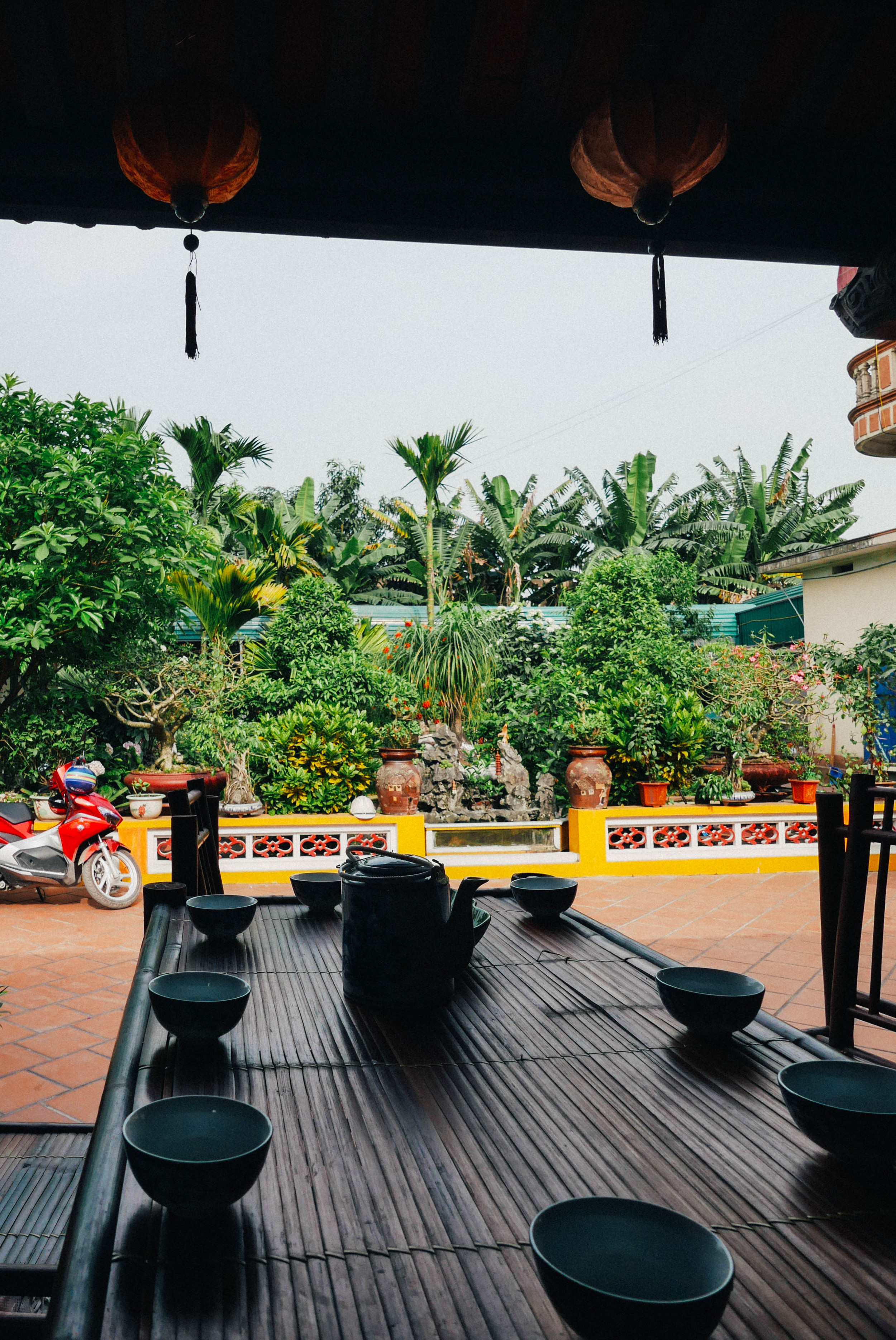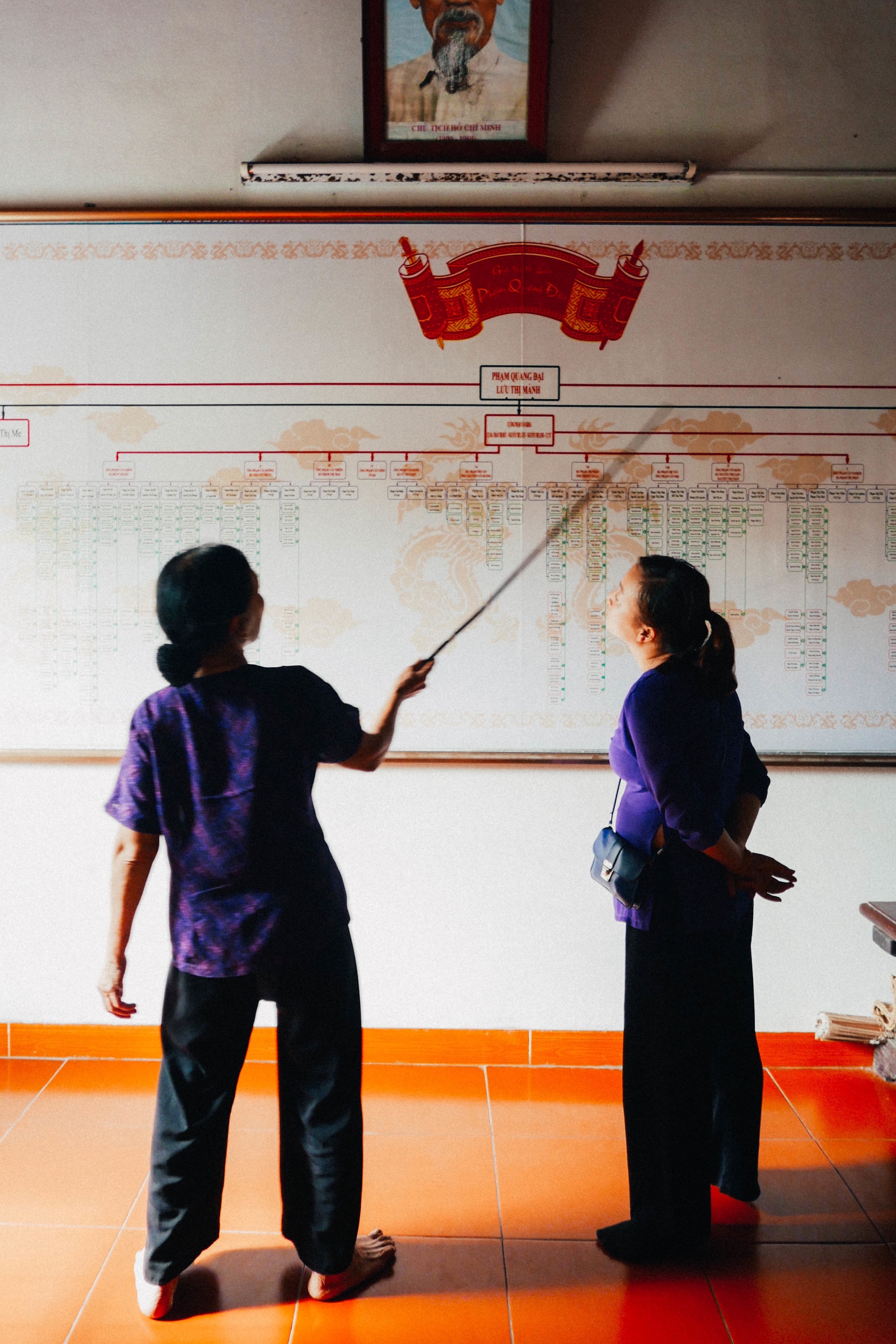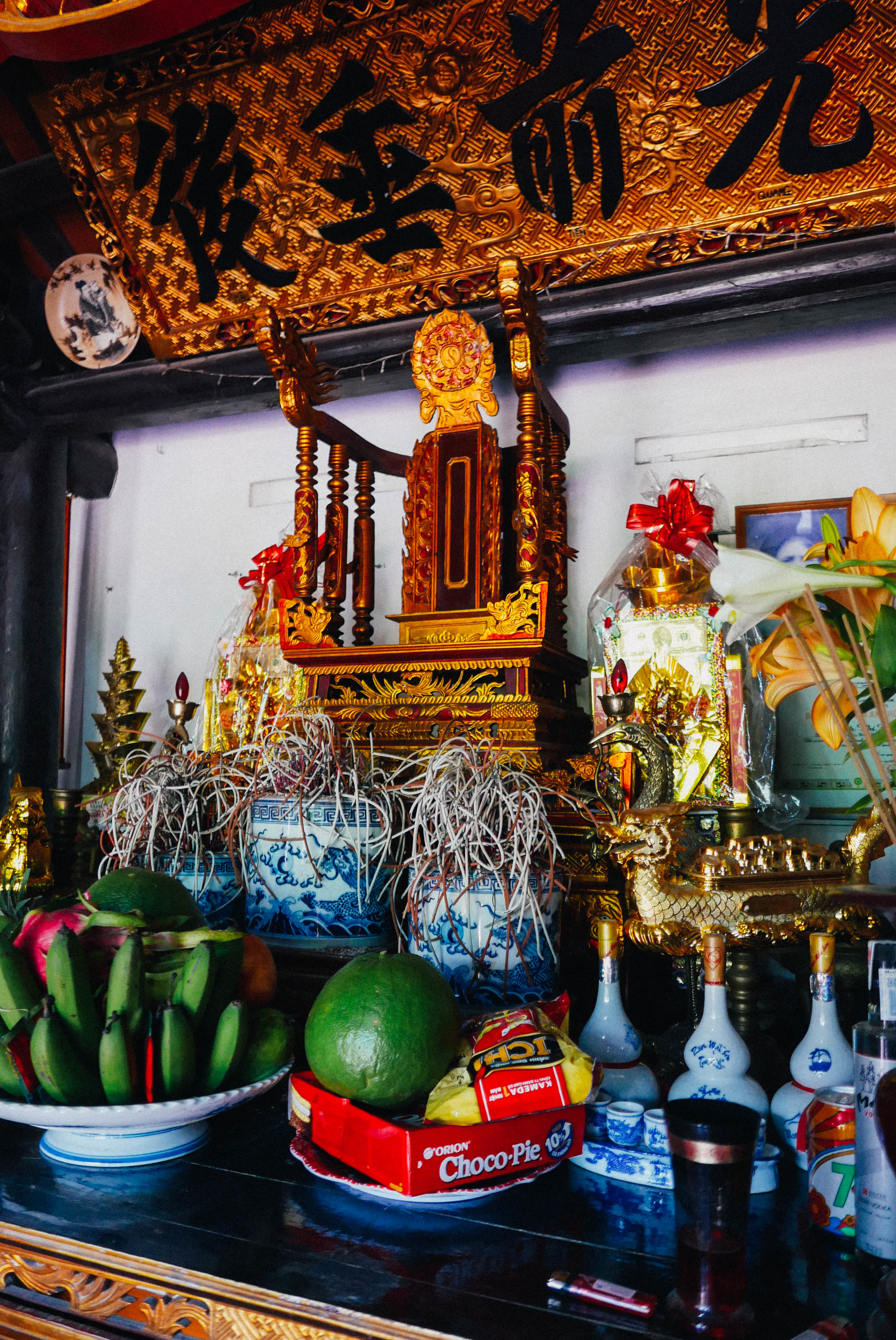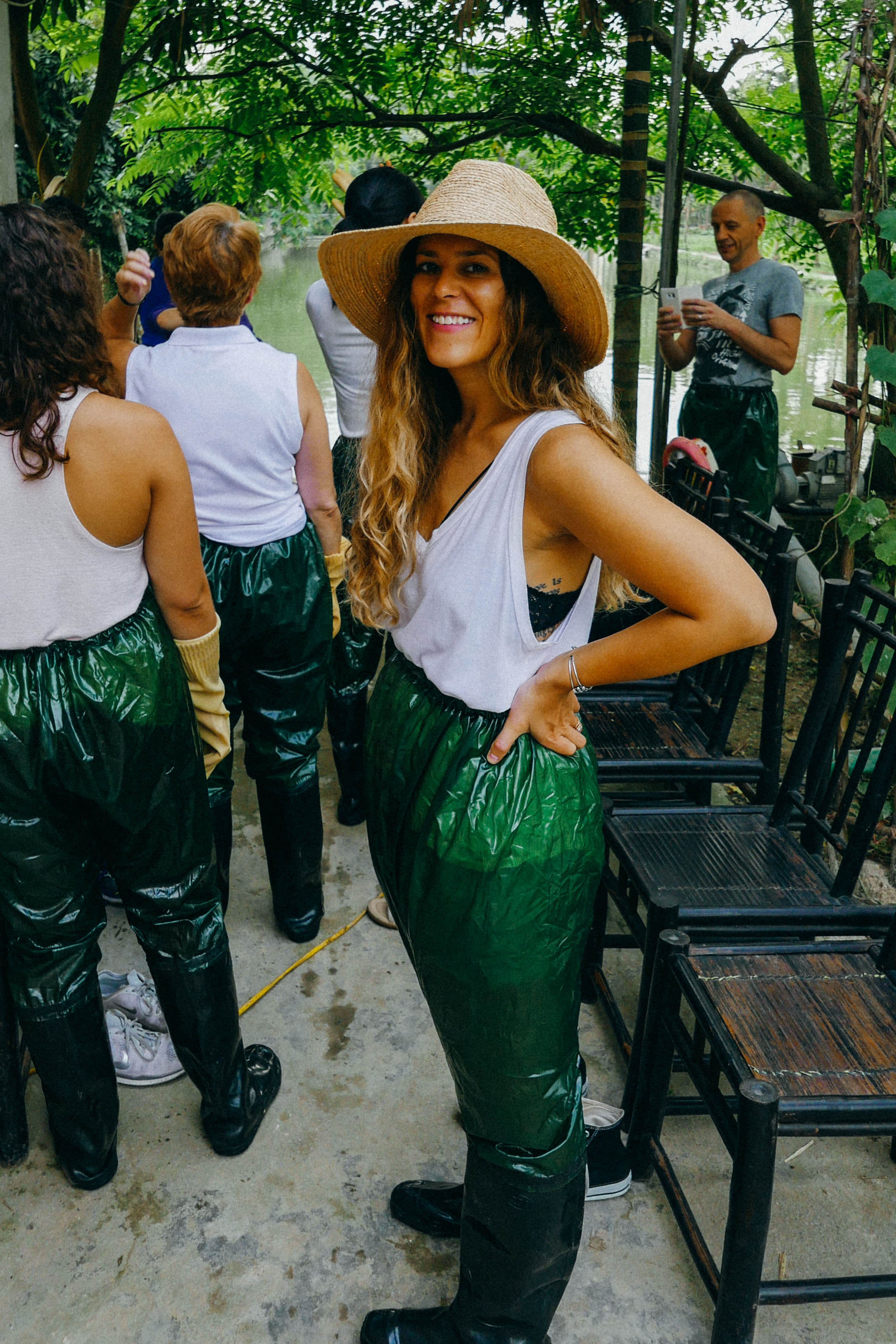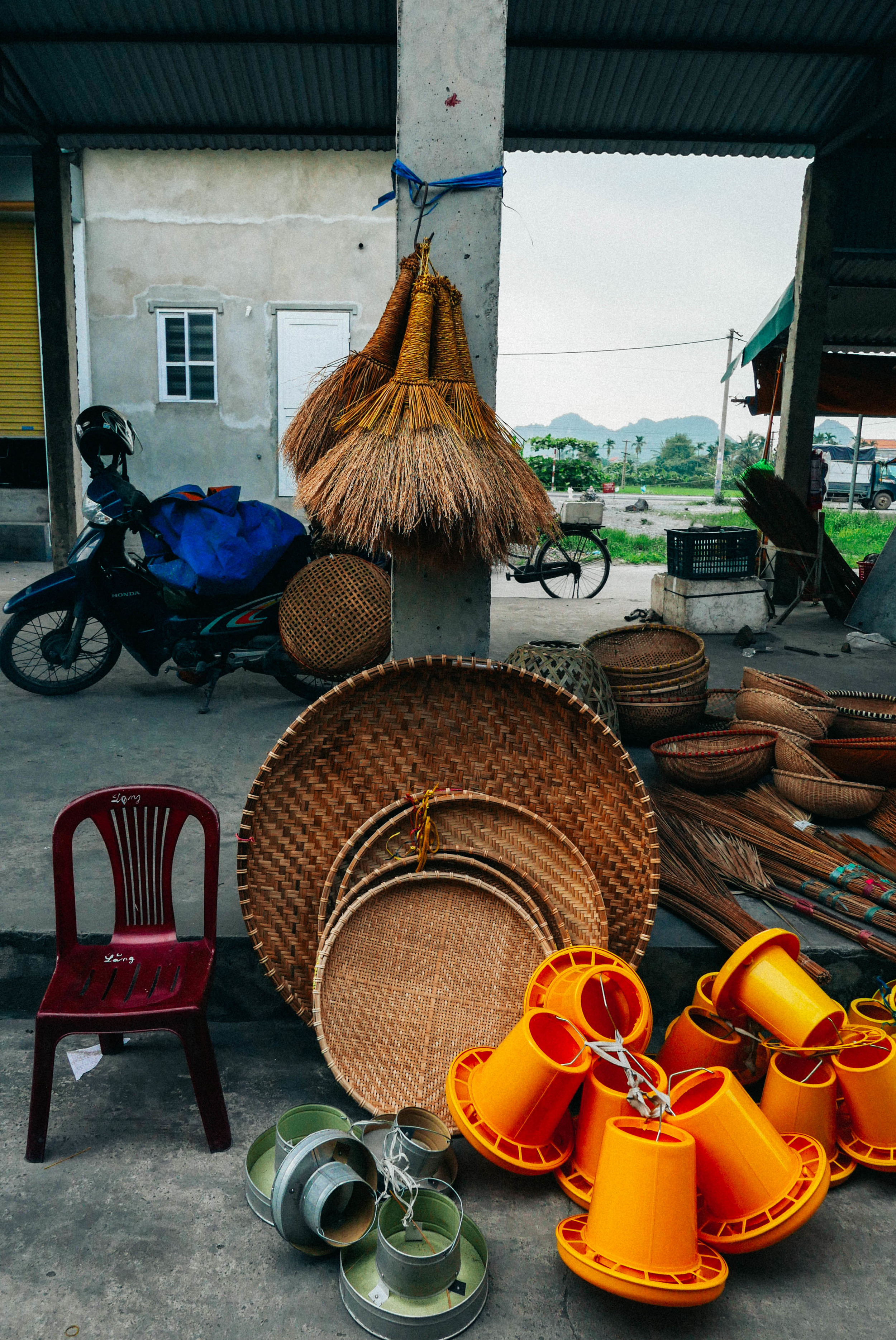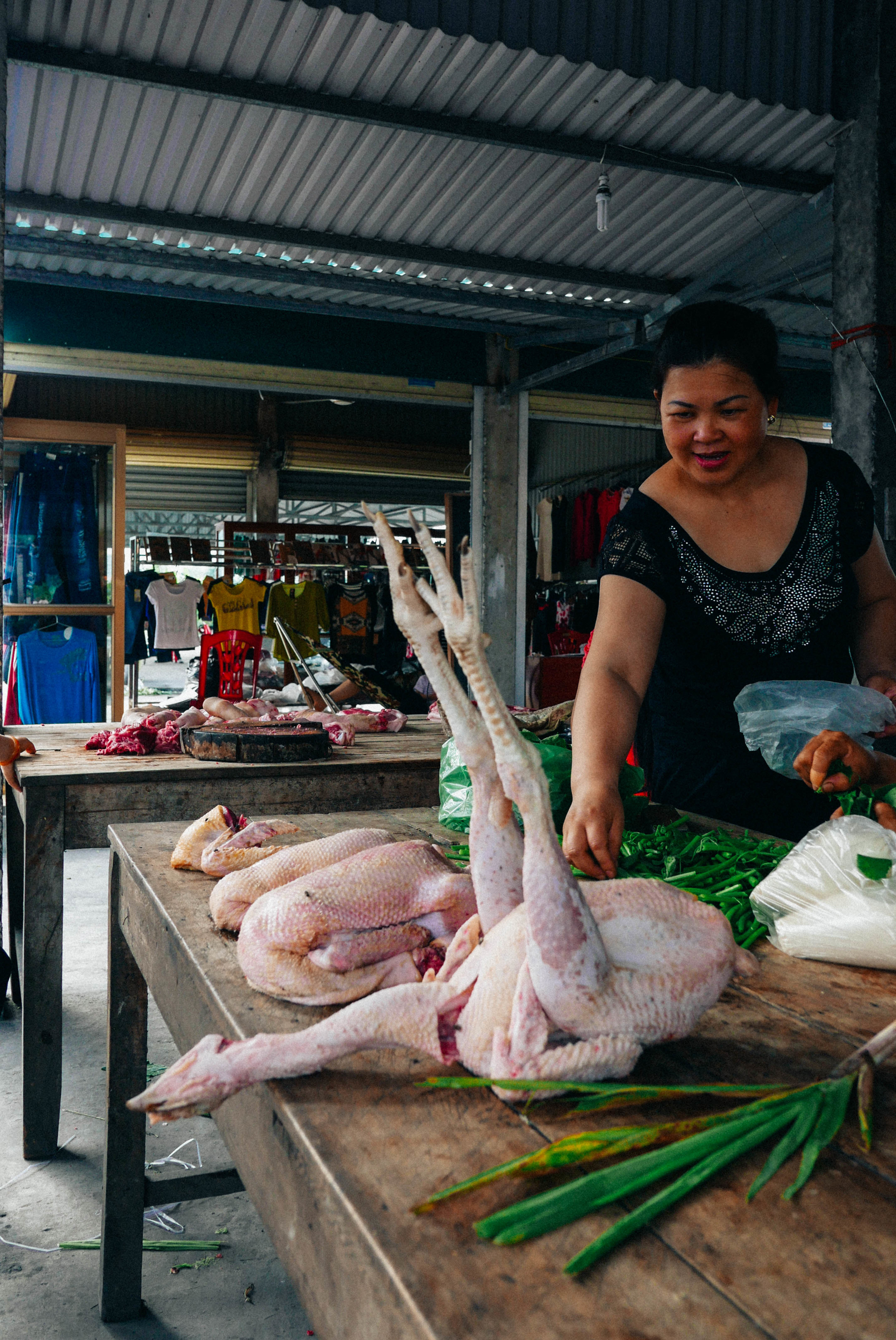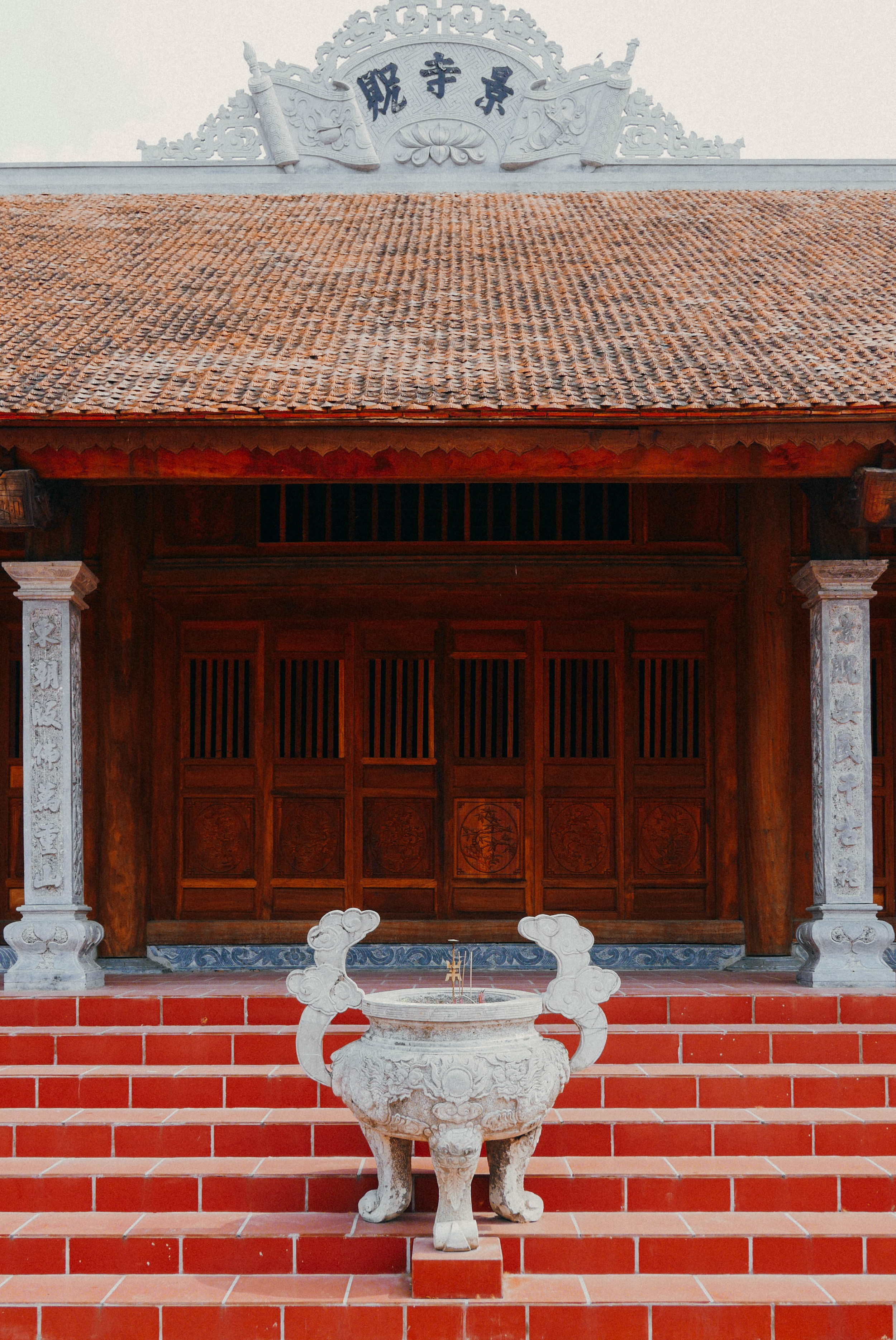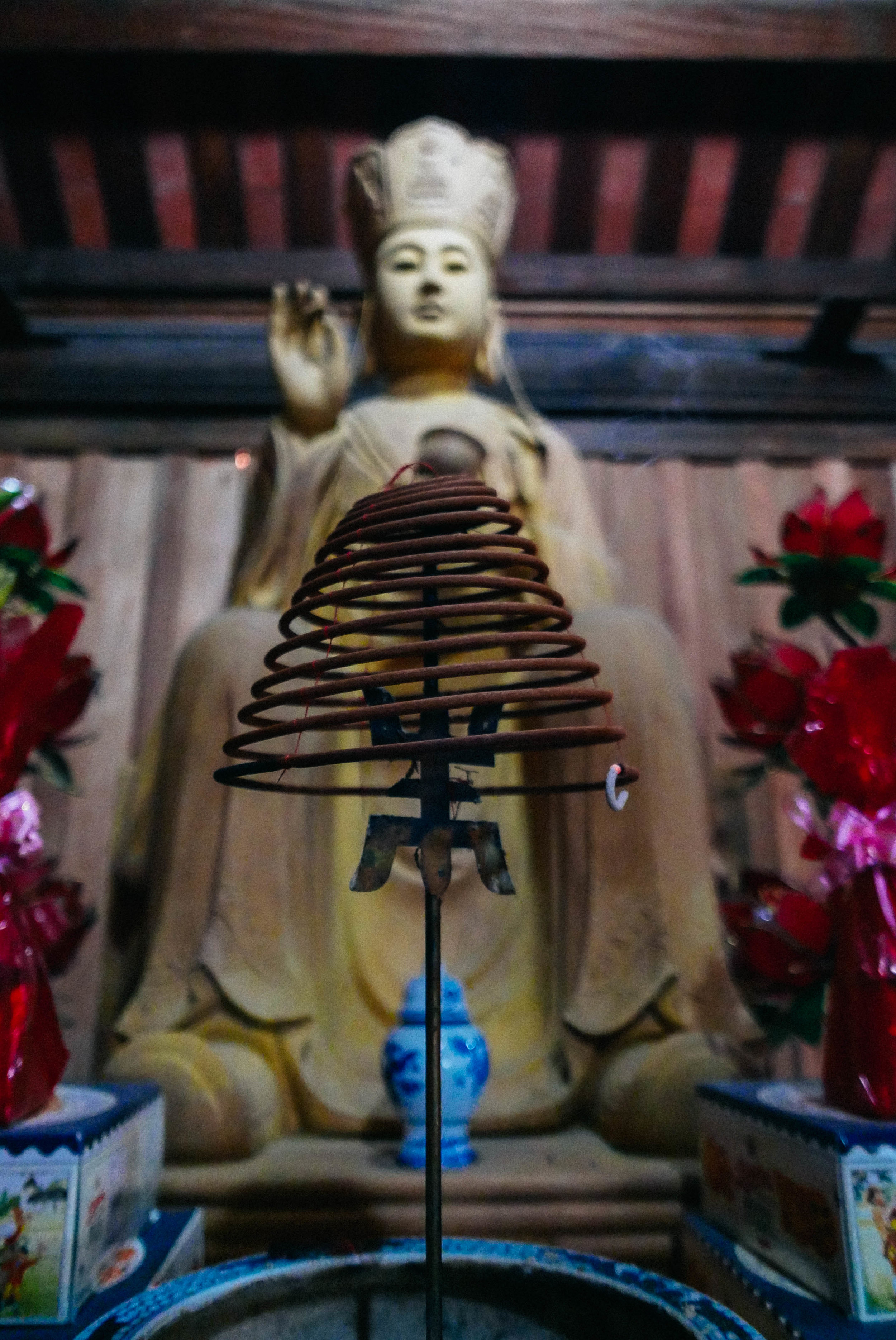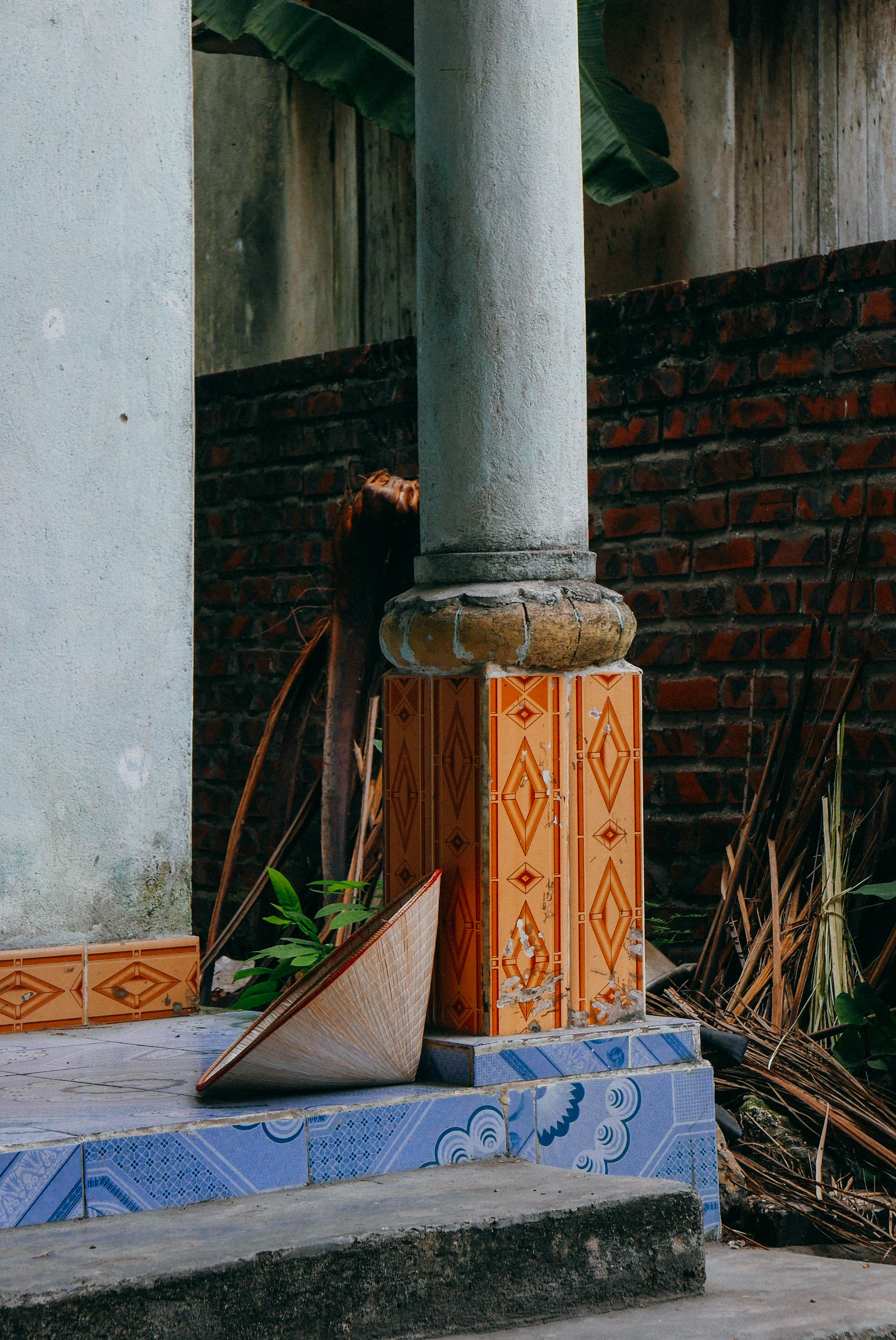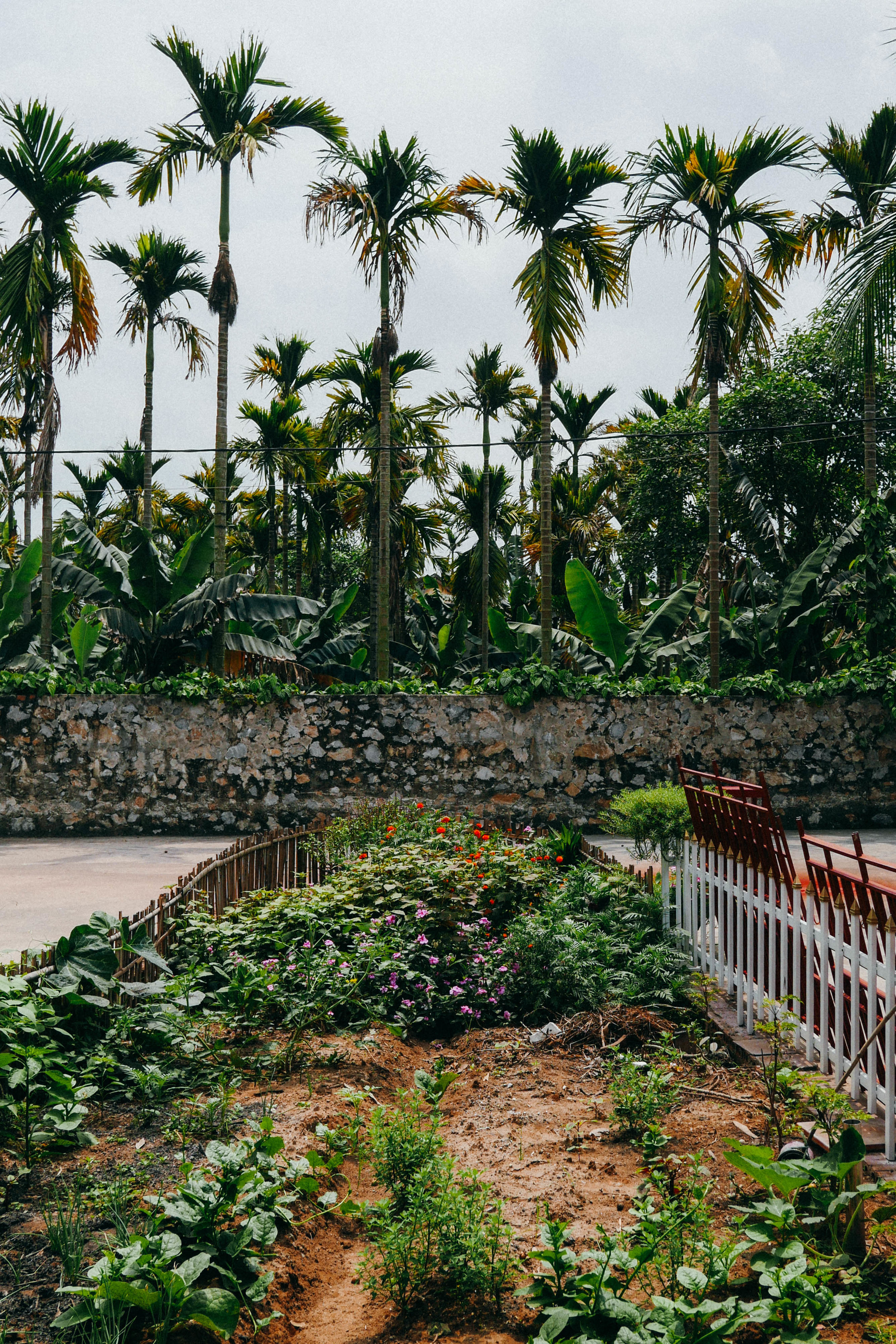An Overnight Village Stay in Vietnam
Sometimes you have those vacations where the stars just seem to align perfectly in your favor, and every day of the trip - every meal, every activity, every overnight accommodation - is a 5-star review waiting to happen. For me, that vacation was Vietnam - and it was due largely in part to our decision to spend two days in the rural farming village of Yen Duc.
Located in the Red River Delta of northeastern Vietnam between Ha Long Bay and Hanoi, Yen Duc is a traditional agricultural village whose inhabitants make their living by cultivating the land and, more recently, through community-based tourism. In partnership with Ha Long Bay cruise operator Indochina Junk, the residents of Yen Duc conduct both single and multi-day village tours which fully immerse visitors in the daily life of Vietnamese farmers and their families.
Visitors to Yec Duc who decide to spend the night in the village have the option to stay in the idyllic Viet House, a luxury village retreat with intricately carved timber doors that open to a serene pond of floating lotus flowers. The house is modeled in the same fashion as a traditional Vietnamese home, but offers all the conveniences and familiarities of a Western accommodation.
Heaven, right?!
Our village guide was the always cheerful Na, a Yen Duc resident who was never without a smile on her face. On arrival she immediately set us up with a pair of bikes that we used to cruise through the village's brick-walled backstreets and bucolic, palm tree-lined rice fields.
I was completely captivated by the beauty of Vietnam's countryside; halting my bike nearly every 10 feet to snap a photo of the lush, green expanse before us.
But, alas, we had places to go and people to meet!
Na led us to the home of a local elderly woman, who welcomed us in for tea and a tour of her residence - a building that had been in her family for 13 (!!!) generations. With Na as her translator, she explained to us how her home had survived the Vietnam War - known here as the American War - by being covered with earth and foliage, disguised to blend in with the many surrounding karst hills (those verdant, lumpy mounds you see in the above photo).
She slowly walked us through each room of her home, explaining its purpose and contents. I was moved by the altars which sit at the center of Vietnamese homes, where members of the family gather to pay respect and leave gifts for those who have passed. Birthdays are not celebrated here - rather the end of one's life becomes an annual celebration which draws family together to remember their loved one and bestow them with money, food and gifts for the afterlife.
After our home tour, we headed back out with Na to learn about daily farming activities in the village - from rice cultivation to vegetable gardening to basket fishing.
What is basket fishing, you ask?
We were given our very own pair of fashionable waders and a bamboo basket to find out.
Fish ponds are a common feature in Vietnamese villages, serving as both a source of food and beauty. The fish are extracted by way of large bamboo baskets that have an arm-width hole at the base. When the basket is overturned on a fish, the farmer (in this case, me) can reach into the basket with their hand and extract their catch.
If you think this sounds tricky, you'd be right.
We were led into the pond in our waist-high waders with baskets in hand and instructed to look for ripples in the water caused by darting fish below. Despite my best efforts, I wasn't able to propel my feet through the pond's quicksand-like bottom fast enough to capture a fish on my own - but with a little help from one of the locals my basket soon contained the contents of what would later become my dinner (admittedly, the animal lover in me was slightly distraught at having to pull the fish from the basket and watch it gasp for breath - I almost threw it back in).
It was quite a different experience than perusing the seafood isle at my local grocery store in Tokyo, where my beloved salmon is always waiting for me in all its plastic-wrapped glory.
Which brings me to: the food. Our meals in Yen Duc were served in a gorgeous thatched-roof pavilion overlooking the rice paddy fields. Seriously, y'all - I couldn't even dream up a more picturesque setting.
Na and a team of local women would gather at the pavilion's kitchen and lovingly prepare each meal, from morning bowls of pho that warmed your belly to multi-course dinners that rivaled the restaurants we'd dined at in Hanoi (all locally sourced ingredients, of course). But perhaps my favorite part about mealtime was that it gave us and our fellow tourists - a mother and daughter from Canada and a married couple from China - an opportunity to sit with Na and learn about her life in the village. I think we learned the most about Vietnamese culture in those moments, talking over our noodles, chopsticks in hand.
The next day, we set out once again on two wheels to explore more of Yen Duc. Our first stop was the local market that sits in the heart of the village.
Unlike the urban wet markets I've visited in southeast Asia - which primarily sell meat, seafood, produce and spices - the local market in Yen Duc had a bit of everything. There were the usual baskets of exotic fruit, just-off-the-block butchered birds and everyday housewares - and then there was the unusual: round racks of "Zara" and "Versace" clothing, displayed in a grassy area along the backside of the market.
We learned that the market in Yen Duc is truly a one-stop shop for villagers, providing everything they need (designer duds included). But the market's value extends far beyond tangible goods - it's a place where neighbors come to connect, share stories and exchange information. The market is a gathering place.
After browsing the racks a bit, we were on to another oft-visited site: the village pagoda.
Pagodas are a holy place for Vietnam's Buddhist community. In Yen Duc, the Canh Huong pagoda is a sacred space where villagers come to pray for good health and plentiful harvests.
As I've shared here before, I have a thing for temples and their smoky, incense-filled interiors. I love the stillness, the ancient wood doors and the peaceful aura that envelopes you upon entering. Although David and I have visited a long list of temples in Japan, we've never had the experience of touring one with a local - so it was particularly special to have a personal guide with us here to explain the role of Buddhism in Vietnamese culture.
We couldn't leave Yen Duc without learning a local craft, so before departing Na took us on one last house visit. The owner of this home - who might have been more cheerful than Na, if that's even possible - instructed us in the Vietnamese art of broom-making.
Broom bristles here are created using leaves from areca palm trees, which are stripped bare with a small hand knife so that only their stiff spine remains. While some (meaning, my husband) may find the craft tedious, I thought it to be quite soothing. We sat together in a circle, stripping leaves and sipping tea until we had a small collective pile of spines between us that could be bundled together to make a broom.
I could have happily sat there all afternoon, just whittling away. I mean, with these surroundings, who would complain?!
Our time in Yen Duc was easily the most educational experience we've had while traveling - and this goes far beyond learning to fish with a bamboo basket or create broom bristles from a palm tree leaf. Here we were not simply checking off a sight-seeing box - we were witnessing everyday life.
Having a translator to converse with locals gave us the opportunity to ask questions that would have otherwise gone unanswered, to provide our own perspectives, and to personally connect with a local community. The conversations that were shared in Yen Duc are ones that we'll carry with us, much as we will the kind smiles of all those who opened up their home to us.
If you're feeling like I was at the end of our tour and hungry for more Vietnamese countryside, feast your eyes on a few of my favorite village scenes in last week's blog post.
THE DEETS
Tours of Yen Duc village span in length from several hours all the way up to four days. Booking inquiries are available through Indochina Junk here or on the official tour site here.
We combined our overnight stay in Yen Duc with an overnight cruise in Ha Long Bay on the Dragon's Pearl junk boat with Indochina Junk (read more about our ah-mazing experience here). This tour package takes you to a lesser-visited area of Ha Long Bay before heading to Yen Duc for a one-of-a-kind cultural experience. All transportation between Hanoi, Ha Long Bay and Yen Duc is provided by luxury van.
If you happen to be in Hanoi, you can stop by the Indochina Junk office for more information at 58 Au Trieu Street in the Hoan Kiem District, or phone them directly at (+84 4) 3923-2559.



